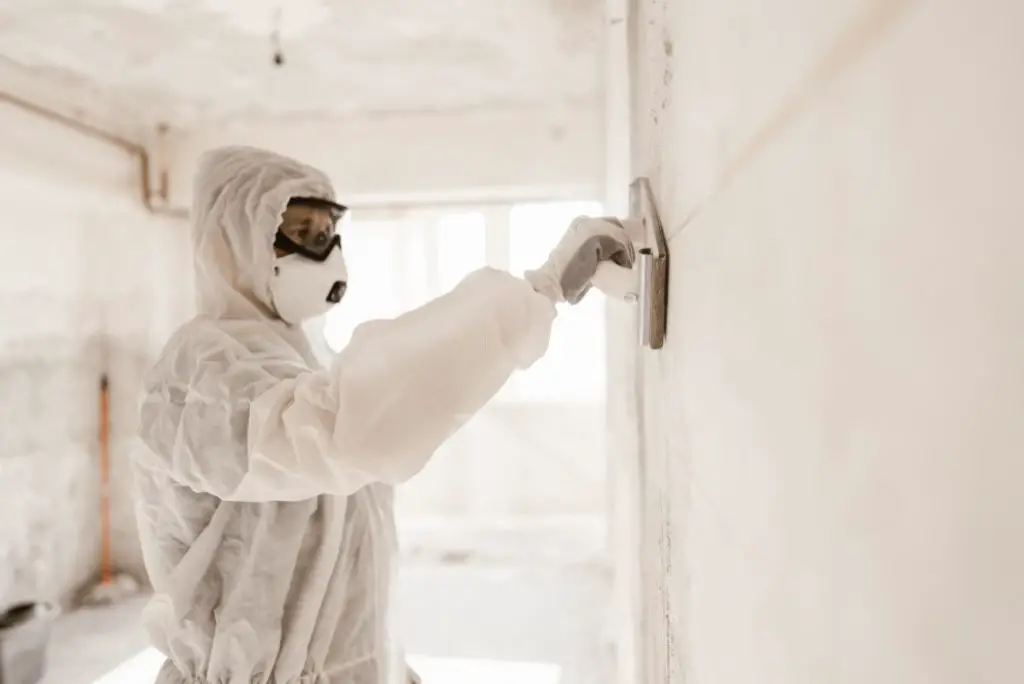While many regulations are similar across state borders, there are also many differences. Depending on where you are, you will have noticed a big difference between the cultures in the different states. Just think about the contrasts between the middle of California, New York, and Virginia. But, it’s not just the cultures that change between these states. Local laws and regulations can also vary immensely.
We all take pride in saluting the same flag. Under this flag, there can be very big differences in the requirements contractors have to follow to operate legally. This also includes painter contractors. In some states, you will need a license. In other states, you will be able to work without one.
Imagine a situation where you can operate legally in one state. By moving 15 miles south, you could be in another state where the licenses are handled entirely differently.
It is also important to stress that the legislation and regulations continue to change. When we write this article, a given set of rules are in place. However, they may have changed when you read it. Therefore, we recommend that you check the local legal regulations in detail. This article will give you a more general overview and idea on the subject.
Table of Contents
Behind the story
A funny fact from we started. We once acquired a website that had an overview of the different rules for various contractor licenses. The problem was that the site hadn’t been updated for a very long time.
Some of the articles hadn’t been revised for 15 years. Once our crew started investigating and updating the content, we quickly realized that it wasn’t enough to update it. We would have to entirely rewrite it from scratch to provide information that would be accurate and up to date.
While those articles are now either omitted or revised, it’s an example that you should probably reconsider articles of a certain age. Remember the basis on which the article was written and consider this. We recommend that you read this as inspiration and urge you to go to the official pages where you are ensured to have the most up-to-date information.
Starting as a professional painter can be both fun and challenging, and you will need to think about many things in the process. It is relatively cheap to start in this field compared to many other businesses. But be aware that you can still make many faults and risk making mistakes that can cost you expensive.
Not knowing how to deal with lead paint.
If it’s the first time you visit this website, you may not know that our business mainly sells lead paint test kits. Given the history of the use of lead-based paint and the risks associated with this paint, there is a need to identify the risks and eliminate them. The addition of lead has helped make the paint more durable. Unfortunately, it also has many serious side effects that you need to know about.

As a professional painter, it’s even more important that you know about the side effects of working with this material. You will need to take the necessary precautions when working with this on an everyday basis. And even if you’re only occasionally working with this kind of paint, you will still need to protect yourself. This is because the serious side effects of lead-based paint only develop slowly over a long time. When you’re doing a job with lead-based paint, remember to take your preventive measures.
While you will be safe if you’re doing things right, there are too many stories of contractors that don’t. And the consequences have been serious for many. Besides being exposed to the lead when painting, you will also be exposed to a lot of lead dust from previous paint works. Also, consider that children are the most affected by the material because they’re still growing and developing.
Lead paint can lead to lots of things, including:
- Memory loss
- Headaches
- Abdominal pain
- & more
Life as a contractor
As a contractor, you will frequently be removing paint to deal with problematic areas as you need to get to the point where you can repaint the area. If you are working on a wall that has been painted with lead-based paint, you will be releasing lead into the air through the dust. If you are not well protected, you risk inhaling a substantial amount of the lead in the dust.

Unlike many other materials, your body will not be disposing of the lead over time. On the contrary, the lead will accumulate in your body and damage your body in different ways. Over the years, many people have suffered serious and sometimes fatal consequences of exposure to this material.
As lead is highly toxic, it can cause different health problems. When the lead is absorbed into the body, it can cause damage to the brain and damage other vital organs. Kidneys, blood, and nerves can be affected, and behavioral problems, tiredness, and headaches are other symptoms.
We don’t want to discourage you from becoming a professional painter. But we do encourage you to take the necessary precautions when working with lead-based paint. You may also want to look at some statistics on lead poisoning if you want more in-depth information.
Being a professional painter can provide a good living for you as long as you take the necessary safety precautions. Fortunately, there are easy things that you should do and that you have to do if you want to comply with the legislation. Not complying with the legislation could result in heavy fines or lawsuits.
As we have mentioned, you may not only be looking into irreversible damage to your health from not protecting yourself adequately. You also risk fines from the EPA or lawsuits due to violation of the legislation. Therefore, we encourage you to carefully look into the best ways to protect yourself and check out the legal requirements.

Encapsulation
The same issues emerge if you’re encapsulating lead paint or removing plaster walls. They’re going to break down into smaller pieces or dust particles harmful to your health. At this point, the dangerous dust is released into the room. Further details are beyond the scope of this article, but you can easily get more information on the internet. Try searching for EPA RRP and find this topic on EPA’s website.
While being a painting contractor may not be quite as risky as being a roofer, there are still inherent risks from doing this type of work. You may very well be exposed to relatively dangerous chemicals, so we encourage you to read up on everything related to becoming a painter. But also, Volatile Organic Compounds pose a risk to your health. Luckily, there has been an important effort to use types of paint that contain significantly lower amounts of VOCs than the case has been before.
Besides that, there are also more common risks associated with the business. These include covering yourself by having the necessary insurance policies. In turn, this will help you stay protected against accidentally damaging someone’s property. Or someone could get hurt by you or on your property.
State requirements
Unfortunately, you can inflict a lot of damage on other people’s property when you’re a contractor. If you make a hole by accident in a wall or cause water damage in a home, you will have to repair or compensate. That means a couple of things are almost universally required for contractors. These include, among other things:
- Workers compensation: This is typically required, at least in most states. It will be required for companies that have employees or a number of workers. In some states, workers classify as employees as well.
- General liability insurance: This insurance helps against accidents such as property damage and third-party bodily injury. It also covers claims that may be made against you.
- Surety bonds: If you are working on high-value projects, in some states surety bonds may be required. They’re only required in some states and other states only require them for projects above a certain value.
Make sure to check which of these requirements you have to live up to. Learn how you might transfer your license from one state to another if you are planning on moving. You want to make sure that you stay compliant throughout the whole process.
This is just one of the many articles that we have available on our site. We encourage you to check out our other articles. We are continuously posting articles that could be of interest to you and someone you may know.
We recently published an extensive article on the various questions homeowners should be asking when they’re buying a home. We have also covered various other topics, such as purchase and sale agreements in Massachusetts. We suggest you also read those and similar articles on related or other topics.
You are hoping to open a painting business in the state you’re either living in or considering to live in. The list below gives you a better understanding of what requirements you will need to fulfill.




